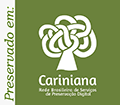Português
DOI:
https://doi.org/10.5281/zenodo.11934845Keywords:
Defectologia, Educação, Inclusão, Sociocultural, VygotskyAbstract
The aim of this article is to outline the construction of the concept of inclusive education in Brazil, examining the multiple elements - political, legal, ideological, and theoretical - that influence and shape its foundations. We focus our approach on the cultural-historical theory developed by Lev Vygotsky and his studies in Defectology, which postulate that disability is a social construction that can be overcome through social compensation strategies. This perspective argues that adversity should not lead to submission, but rather leverage the search for alternative paths that facilitate the learning process. Throughout this study, we highlight the use of Vygotsky's precepts, particularly the Zone of Proximal Development, in the Brazilian educational context, while also showing the barriers and resistance faced in implementing such practices. Through a review of relevant literature and the analysis of cases selected as examples, we seek to demonstrate how the adoption of the Vygotskyan approach can foster important changes in inclusive education, enhancing transformations that align with the principles of equity and social justice advocated by the Brazilian legal system.
Downloads
Published
How to Cite
Issue
Section
License
Copyright (c) 2024 Joel Fernandes, Clodoaldo Valverde

This work is licensed under a Creative Commons Attribution 4.0 International License.
Direitos Autorais
Autores mantém os direitos autorais e concedem à revista o direito de primeira publicação, com o trabalho simultaneamente licenciado sob a licença Creative Commons CC-BY 4.0 que permite o compartilhamento do trabalho com reconhecimento da autoria e publicação inicial nesta revista.
O conteúdo relatado e as opiniões emitidas nos textos publicados nesta revista são de exclusiva responsabilidade dos autores.



